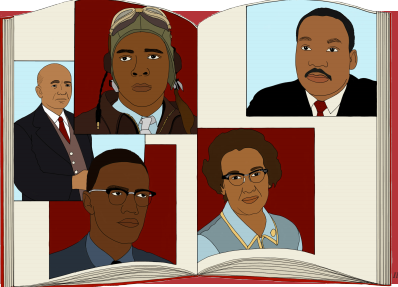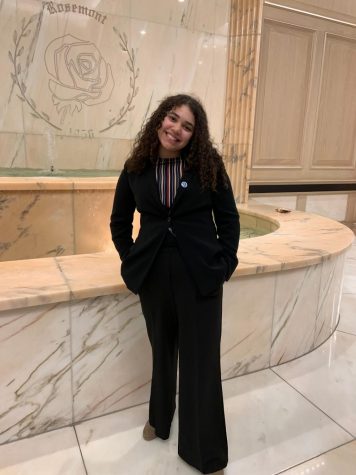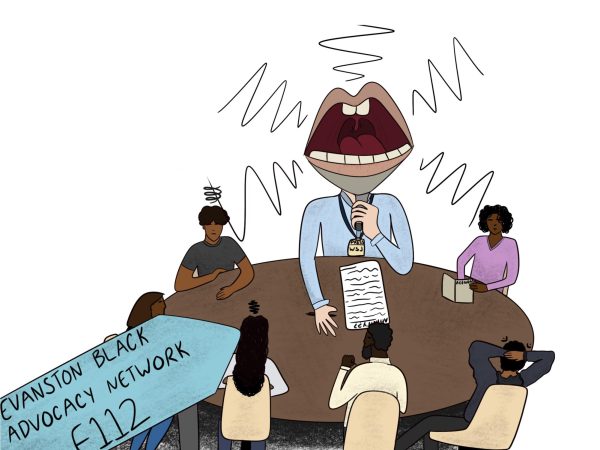28 days is not enough: Black history should be taught year round

Illustrated by Ellie Lind
February 28, 2020
In January of 2019, Illinois passed a law that required all public colleges, high schools and elementary schools, to teach Black history. According to the Illinois House Resolutions, “…every public elementary school and high school shall include in its curriculum a unit of instruction studying the events of Black history…” The law goes into detail saying the African slave trade, slavery in America, as well as the after-effects of slavery and African-American culture are among the topics required to be taught.
Carter G. Woodson created Black history week in 1915 to acknowledge the achievements of Black people. It was the second week of February because it was in between the birthdays of Abraham Lincoln, who abolished slavery, and Frederick Douglass, a Black abolitionist whose slave narrative became popular and impacted the path towards the freedom of enslaved Africans. It evolved into a month-long celebration, once protest began at Kent State University in the 1970s to uplift the idea of dedicating a month to Black History. Black History was used as an educational period that evolved to become a month of reflection on our history as well as a way for us to acknowledge our ancestors and our great achievements made in American history. The month’s celebrations have also provided education to the Black community and is allowing for us to see these historic achievements, but why is it that our community is only celebrated throughout this month when most, if not all, of American history is built upon Black history?
The economy of America was built from slave labor and the production of cotton. This landmark influence and that of Black rights and movements on American history are so important but are moments our country rarely acknowledges.
Currently, Arkansas, Florida, Mississippi, New Jersey, New York and Rhode Island, all have state mandates that require Black history to be taught in schools. This has been a step for Black culture in our state and hopefully, more states will begin to follow along. Historically, many teachers cram our history into one month, but there is a lot of our history that needs to be incorporated during the entire year to accurately teach our history. This state requirement is a step in Black achievement and is powerful for the community.
Ganae McAlpin, an African American Studies and Humanities teacher, states that Black history should not be taught during just Black History Month because it blindsides the topic of Black lives throughout history.
“You do not just teach it during this month. It is horrible and trivializes the experiences, the history and everything Black people have gone through. We try to incorporate [Black history] throughout history, and so when we get to talking about Black folks, it’s not like ‘oh Black people are oppressed;’ we are talking about oppression as a whole, and Black people are not the only people who are oppressed,” McAlpin says.
If we continue to talk about Black History only during Black History month, it won’t allow people, especially Black people, the opportunity to fully understand their history in an effective way. In ETHS’ curricula across content areas, I have experienced learning more about more Black Voices, Women’s voices, LatinX voices and LGBTQ+ voices, just to name a few. History teachers need to continue working towards including multiple oppressed voices throughout their curriculum to accurately represent the communities in American society. Students of color need to understand that their history is important, and they will be better able to do this when they see themselves more reflected in their education.
Non-POC students need to reflect on the history being taught during their history courses to help them with understanding the experiences of oppressed groups throughout history and their unearned privileges.
Our school needs to work towards making sure we can incorporate the stories of historically oppressed groups more into our curricula. It is important that American history is shared an accurate way and we acknowledge all of the discrepancies within the culture of teaching Black history as American History.















